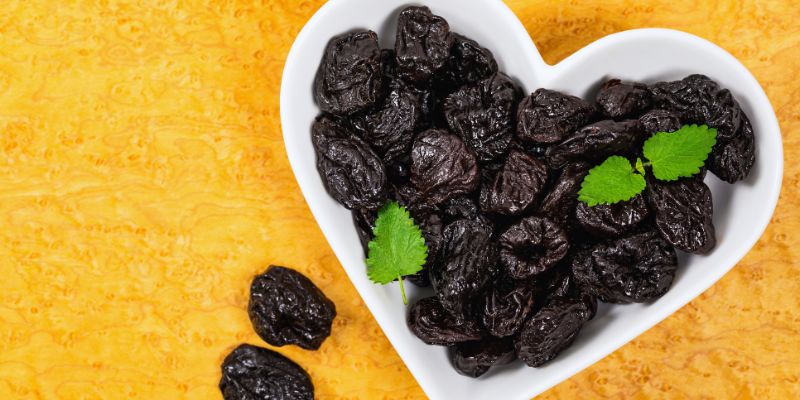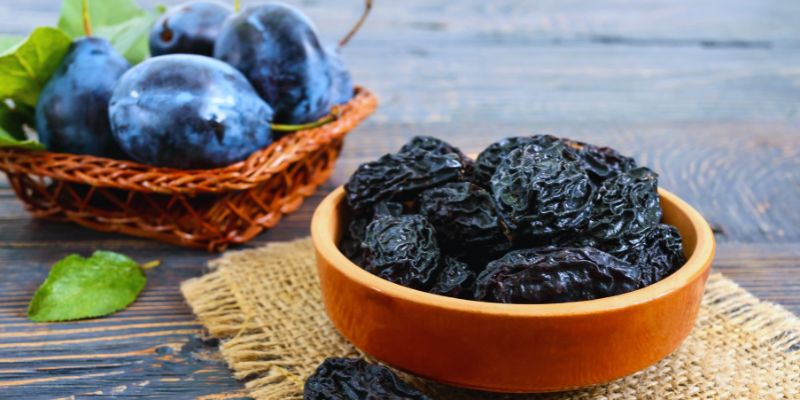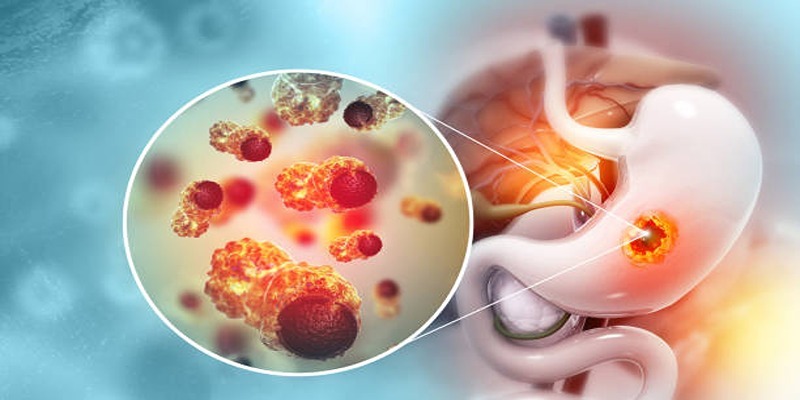The Surprising Health Benefits of Prunes: Are They Really That Good for You
Advertisement
Prunes, or dehydrated plums, are a kind of stone fruit with a delightful sugary flavor and sticky consistency. You can eat them alone or combine them with other foods. Many years ago, Turkish sultans and wealthy Persian families consumed this magnificent dried fruit in major meals and festivals. Prunes are rich in several vitamins, minerals, fiber, and antioxidants.
Prune consumption may be helpful in constipation, bone loss, and mineral deficiencies and can reduce the risk of certain severe disorders. These remarkable health benefits make them a must-part of your diet. But if you are still thinking about including them in your diet, keep reading and learn about their various health benefits in detail here!

Nutritional Value Of Prunes
Prunes are easy and simple to include in your daily meals. They can be eaten alone or added to meals to enhance nutritional value and flavor. For example, you can incorporate prunes into your morning porridge or smoothie. Combine it with warm or cold whole-grain foods like brown rice and quinoa. You may add prune puree to hummus to make a tasty plummus. If not, combine them with nuts, apricots, and dark cocoa chips to make a nutritious snack mix. Prune juice is another option. Whatever the way you choose to add them to your diet, they will also provide you with:
- Calories: 104
- Protein: 1 gram
- Fat: 0 grams
- Carbohydrates: 28 grams
- Fiber: 3 grams
- Sugar: 17 grams
What Are The Health Benefits Of Prunes?
Prunes are rich in sugar and fiber. Therefore, they can help you get the needed energy and improve gut health. But, as they have a low glycemic index, they do not induce an abrupt boost in blood sugar levels. Not only that, they also offer many other health benefits; let's discuss some of their surprising benefits here:
Helps In Digestion
Prunes contain an abundant amount of both insoluble and soluble fiber. Insoluble fiber aids in relieving constipation while maintaining your intestinal movements regularly. Soluble fiber promotes digestion and soaks up nutrients from your diet. Also, it prevents constipation by increasing the weight of your stool and may increase the speed at which waste travels through your intestines. According to a study, prunes are as beneficial as prescription medicines for easing constipation.
Builds Bones
It is thought that people who are 50 years old and above have osteoporosis or poor bone density. Consuming prunes may provide specific bone advantages because they contain boron, a mineral that may aid in keeping bones healthy. Besides that, prunes may be highly effective in combating decreased bone density caused by radiation therapy, like chemotherapy for cancer. They have a significant amount of vitamin K and potassium, which boost bone health. Studies have revealed that regular 50 grams of prunes can preserve bone health in older men and postmenopausal women.
Lowers Cholesterol Level
Lipids and cholesterol may gather in your blood vessels and make plaque. The accumulation of plaque in your arteries can lead to atherosclerosis, tightening the arteries. If not handled, this illness can result in heart failure, stroke, or angina. Eating prunes can help decrease your cholesterol levels because they contain pectin, a kind of fiber that may assist in cutting the level of cholesterol your body absorbs. In one experimental study, 41 men with elevated cholesterol were given 12 prunes or 360 mL of grape juice daily for four weeks. Men who consumed prunes had a more significant drop in "bad" cholesterol than those who drank grape juice.

Reduce Appetite
For healthy, persistent weight control, make tiny modifications and concentrate on what to add to the meal rather than what to eliminate. For this, prunes can be a great addition as they assist you in maintaining your weight by keeping you satisfied for a long time. Prunes take time to digest due to their high fiber content. Furthermore, prunes have a low glycemic index, which slowly increases your blood glucose (sugar) levels. According to research, those who eat dried fruit have reduced total body mass indexes (BMIs) and waist dimensions.
Supports A Healthy Gut Microbiome
It may surprise you, but the gut bacteria, commonly called your gut microbiome, impact your general health. According to research, prunes can assist in maintaining ideal intestinal microbes. Your gut microbiome is the complex variety of microorganisms in your digestive tract, including fungi, bacteria, and viruses. According to human trials, consuming prunes may boost the number of bifidobacteria in your gut microbiota. Such bacteria have been associated with improved gut health, lower gastrointestinal infections, and protection from colon cancer.
Lower Blood Sugar Level
Prunes are rich in compounds that are beneficial in blood sugar regulation. Despite abundant carbohydrates, prunes do not induce a significant blood sugar level change after consumption. It is due to their ability to boost adiponectin levels, a hormone involved in blood sugar management. Prunes are naturally flavorful and contain no extra sugar, which makes them a better sweet option for baked products and other uses. When consumed in moderation, prunes can reduce the risk of developing type 2 diabetes. A suitable serving size is 44-87 grams.
Improve Diet Quality
Eating dried fruits like prunes can make your diet healthy, as dried fruits are often high in fiber and potassium. A study discovered that those who took 0.25 cups or more of dried fruit daily had better Healthy Eating Index (HEI) ratings than those who did not consume dried fruit. Prunes are one of the dried fruits with the most diversified phenolic characteristics. Phenolics are biologically active substances with anti-aging, antibacterial, and antioxidant effects. According to research, phenolic compounds can help you avoid persistent disorders such as cardiovascular diseases and type 2 diabetes.
Conclusion:
Prunes are a delicious fruit that contains vitamins, minerals, fiber, and antioxidants. They're highlighted for their soft texture and sweet-savory flavor. Consuming prunes may benefit digestive, cartilage, and heart health. It has also been demonstrated to enhance the overall diet quality and may help control weight. Additionally, they need little effort. Thus, adding to your diet is simple, such as breakfast smoothies, cereal dishes, and desserts.
Advertisement












